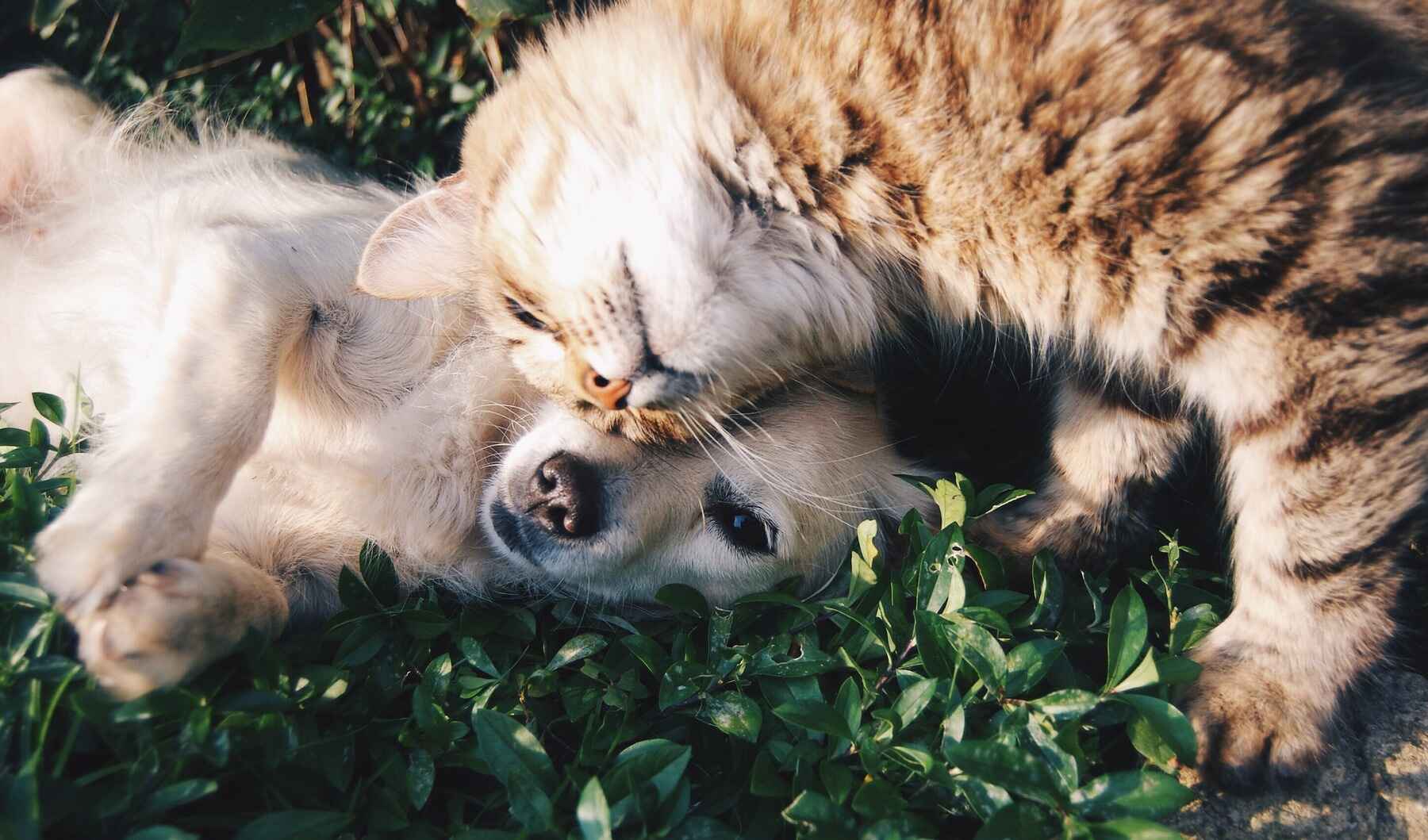Pediatric care for puppies and kittens resonates with new pet parents and anyone looking to ensure the health and well-being of their young companions. Here, I will share my experience and expertise in this field with them. They face the challenges of navigating young animals’ unique needs and vulnerabilities.
Caring for puppies and kittens requires specialized knowledge and attention, from vaccinations and nutrition to socialization and early disease detection. In this article, I will equip owners with the knowledge and tools necessary to support their beloved young pets’ healthy growth and development.
Contents
Pediatric Care for Puppies and Kittens
When it comes to welcoming a new furry member into the family, ensuring their health and well-being is paramount. Proper pediatric care is vital in setting the foundation for a lifetime of happiness and good health for puppies and kittens.
Below, we will explore the essential aspects of pediatric care, including newborn care, vaccination schedules, early life check-ups, and the importance of socialization and early training.
Essential Care for Newborns
Newborn puppies and kittens require special care during their early stages of life to ensure their health and well-being. Here are some essential care guidelines to follow when caring for newborns:
- Maintain a warm environment: They cannot regulate their body temperature effectively, so providing a warm and draft-free environment is crucial. Use a heating pad or heat lamp set to a safe and appropriate temperature, or create a nesting area with blankets or towels to keep them cozy.
- Frequent feeding: They have small stomachs and need to be fed frequently. For orphaned or hand-reared newborns, consult with our veterinarians to determine the appropriate milk replacement formula and feeding schedule. If the mother is present, ensure they have access to nursing and monitor their weight gain to ensure they are receiving adequate nutrition.
- Stimulate elimination: They cannot eliminate waste independently and rely on their mother or caregiver to stimulate them. After each feeding, use a warm, damp cloth or cotton ball to gently massage their anal and genital areas, mimicking the mother’s licking action, to stimulate urination and defecation.
- Regular check-ups: Schedule regular veterinary examinations for newborns to monitor their growth, development, and overall health. Our veterinarians guide you on vaccinations, deworming, and specific care requirements for your particular breed or species.
- Socialization and bonding: Encourage gentle handling and socialization from an early age to ensure they develop positive associations with human interaction. Gradually introduce them to new experiences, sights, sounds, and gentle touches to foster social and emotional development.
- Hygiene and cleanliness: Keep the newborns’ living area clean by regularly washing bedding, sanitizing feeding equipment, and maintaining proper hygiene practices. Ensure the environment is free from hazards and provide a safe, quiet space for them to rest and grow.
- Observe and monitor: Continuously observe them for signs of distress, illness, or abnormalities. Look out for changes in appetite, behavior, or physical appearance, and promptly report any concerns to our veterinarians.
Keep in mind that they are sensitive and need careful handling. Speak with our veterinarians if you have concerns about caring for young puppies or kittens. You can support them in thriving and developing into mature, healthy pets with the right care and attention.
Vaccination Schedules and Early Life Check-Ups
Vaccinations and early-life medical examinations are essential components of responsible pet ownership. They play a crucial role in protecting the health of puppies and kittens, preventing the spread of infectious diseases, and ensuring their overall well-being. The following are important things to think about when it comes to immunization schedules and early life exams:
- Consult with a veterinarian: Ask the vet as you bring new puppy or kitten into your home, schedule an appointment with our veterinarians. They will guide you through the necessary vaccinations, provide information on local disease risks, and establish a personalized vaccination schedule based on your pet’s age, breed, and lifestyle factors.
- Core vaccinations: Core vaccines, recommended for all dogs or cats, protect against common and potentially life-threatening diseases. Our veterinarians will determine the appropriate timing and intervals for these vaccinations.
- Booster shots: Vaccinations are administered in a series of initial doses, followed by booster shots to ensure long-term immunity. Our veterinarians will provide a vaccination schedule outlining the timing and frequency of booster shots. It’s important to adhere to this schedule to maintain optimal protection for your pet.
- Early life check-ups: Regular medical examinations during the early stages of your pet’s life are crucial for monitoring their growth, development, and overall health. These visits allow the veterinarian to identify potential health issues, provide necessary treatments or preventive measures, and address any concerns you may have as a new pet owner.
- Additional vaccinations: Our veterinarians may recommend additional vaccinations depending on your pet’s lifestyle and potential exposure risks. Discuss with them to determine if these are necessary for your pet.
- Wellness exams: Along with vaccinations, early-life check-ups allow the veterinarian to conduct a comprehensive physical examination. This includes assessing the heart, lungs, eyes, ears, teeth, and overall body condition. They will also discuss parasite prevention, nutrition, and behavior and answer any questions you may have about caring for your new pet.
- Microchipping and identification: Early life check-ups are an ideal time to discuss microchipping your pet for permanent identification. Microchips can increase the chances of being reunited with your pet if they become lost or separated from you.
For future reference, do not forget to keep a record of your pet’s vaccinations and examinations. Regular veterinary visits, adherence to vaccination schedules, and preventive care measures are crucial for your cherished pet’s long-term health and well-being.
Common Core Vaccines for Puppies and Kittens
Regardless of their lifestyle or environment, all puppies and kittens are thought to require the core vaccines. The following are the standard ones recommended for kittens and puppies:
- Canine distemper (for puppies): Canine distemper is a highly contagious and potentially fatal viral disease that affects dogs. This vaccine provides protection against this disease, which can cause respiratory, gastrointestinal, and neurological symptoms.
- Feline panleukopenia (for kittens): Feline panleukopenia, also known as feline distemper, is a highly contagious viral disease that affects cats. This vaccine protects kittens against this often-dead disease, primarily affecting the gastrointestinal and immune systems.
- Canine parvovirus (for puppies): Canine parvovirus is a highly contagious viral disease that primarily affects puppies. As expected when a puppy has parvo, it can cause severe gastrointestinal symptoms, leading to dehydration and potentially life-threatening complications.
- Feline herpesvirus and calicivirus (for kittens): Feline herpesvirus and calicivirus are two common respiratory viruses that can cause severe respiratory symptoms and eye infections in cats. Vaccination helps protect kittens from respiratory diseases and reduces the severity of symptoms if they become infected.
- Rabies: Rabies is a deadly viral disease that affects all mammals, including dogs and cats. It can be transmitted to humans and poses a significant public health risk. In addition to being necessary for pet safety, rabies vaccination is mandated by law in many places.
It is important to consult a veterinarian to determine the appropriate timing and schedule for these core vaccinations. Our veterinarians will provide guidance on initial vaccination doses, booster shots, and any additional vaccines recommended based on your pet’s specific needs and potential exposure risks.
Remember to get a record of your pet’s vaccinations, including the dates and types of vaccines administered. Regular vaccination updates and adherence to recommended schedules are essential to maintain the effectiveness of the vaccines and ensure your pet’s ongoing protection against preventable diseases.
Non-core Vaccines Recommended for Puppies and Kittens
In addition to core vaccines, there are non-core ones that are recommended for puppies and kittens based on their circumstances, lifestyle, and potential exposure risks. Here are some commonly recommended:
- Bordetella: A vaccine protects against Bordetella Bronchiseptica, a bacterium commonly associated with kennel cough in dogs. This vaccine is often recommended for puppies that will be in close contact with other dogs, such as those attending boarding facilities, dog parks, or training classes.
- Leptospirosis: Leptospirosis is a bacterial infection that can affect both puppies and kittens. It is transmitted through contact with contaminated water, soil, or urine from infected animals. The vaccine is recommended for pets that may be exposed to environments where the bacteria is prevalent, such as rural areas or regions with high wildlife populations.
- Canine influenza: Canine influenza is a viral respiratory infection that affects dogs. The vaccine is recommended for puppies that will be in close contact with other dogs, particularly in areas where outbreaks have occurred. It is important for dogs that will be attending dog shows, competitions, or daycare facilities.
- Feline leukemia virus (FeLV) (for kittens): The feline leukemia virus is a contagious and life-threatening infection that affects cats. The vaccine is recommended for kittens who may have exposure to other cats or live in multi-cat households. Outdoor cats or those with unknown FeLV status may also benefit from this vaccine.
- Lyme disease is a tick-borne illness caused by the bacterium Borrelia Burgdorferi. The vaccine is recommended for puppies in regions with prevalent ticks and Lyme disease is endemic. It protects against this potentially debilitating disease.
It is important to discuss with our veterinarians to determine if any non-core vaccines are recommended for your specific pet. They will consider the pet’s lifestyle, geographical location, and potential exposure risks. They can guide the necessity, timing, and frequency of these vaccines.
Although non-core vaccinations can offer supplementary defense against particular illnesses, remember that not all pets will require them.
Early Life Check-Ups
Early life check-ups are essential to responsible pet ownership, ensuring the health and well-being of puppies and kittens during their critical developmental stages. They allow veterinarians to monitor their growth, detect potential health issues, and offer guidance on proper care. Key points to think about about early life check-ups are as follows:
- Initial veterinary visit: Schedule your puppy or kitten’s first visit soon after bringing them home. This initial visit allows our vets to assess their overall health, conduct a thorough physical examination, and address any immediate concerns or questions you may have as a new pet owner.
- Vaccinations: Early life check-ups often coincide with the administration of core vaccinations. Our veterinarians will discuss the appropriate vaccination schedule for your pet.
- Growth and development monitoring: Our veterinarians will monitor your pet’s growth and development. They will assess their weight, body condition, and overall physical development to ensure they grow healthily. This monitoring helps identify any potential issues or nutritional needs specific to your pet.
- Parasite prevention: Our veterinarians will advise you on protecting your pet against fleas, ticks, intestinal parasites, and heartworms. They will recommend appropriate preventive medications and discuss strategies for controlling and preventing parasites in your pet’s environment.
- Nutrition and feeding recommendations: Our vets will guide you in selecting the right diet for your pet’s age, breed, and specific nutritional needs. They can address any concerns you may have regarding feeding schedules, portion sizes, and dietary supplements.
- Behavior and training guidance: Early life check-ups are an opportunity to discuss behavior and training with our veterinarians. They provide advice on house training, socialization, and basic obedience training techniques. Addressing these topics early on sets a foundation for a well-behaved and socially adjusted pet.
- Dental care: Dental health is an important aspect of overall well-being. Our vets will examine your pet’s teeth and gums during early life check-ups, guiding dental care practices and recommending appropriate dental hygiene routines to maintain oral health.
- Future preventive care planning: Early life check-ups also involve discussing future preventive care measures, such as spaying or neutering, microchipping, and additional vaccinations or wellness procedures needed as your pet grows.
Regular check-ups throughout your pet’s life are essential for maintaining their overall health and building a strong bond between you and your cherished companion.
Socialization and Early Training
Socialization and early training are critical to raising a well-rounded and well-behaved pet. Starting these processes early in a puppy or kitten’s life can greatly contribute to their overall development and ability to adapt to various environments. In terms of early training and socialization, keep the following points in mind:
- Early socialization: Introduce your puppy or kitten to a wide range of people, animals, and environments during their early developmental stages. This exposure helps them become familiar with different sights, sounds, smells, and experiences, reducing the likelihood of fear or aggression later in life. Gradually expose them to new situations, ensuring positive and controlled interactions.
- Positive reinforcement: Use positive reinforcement techniques, such as treats, praise, and rewards, to encourage desired behaviors. Rewarding your pet for good behavior reinforces their understanding of what is expected of them and promotes a positive learning environment. Avoid punishment-based training methods, as they can lead to fear and anxiety.
- Basic obedience training: Begin teaching basic commands, such as “sit,” “stay,” and “come,” as early as possible. Consistency and repetition are key to successful training. Use reward-based training methods to motivate your pet and make learning enjoyable. Consider enrolling in puppy or kitten training classes, where they can learn in a structured and social environment.
- Leash and crate training: Introduce your pet to a leash and collar early to familiarize them with walking on a leash without pulling. Crate training helps provide a safe and comfortable space for your pet and aids in housebreaking and separation anxiety prevention. Gradually acclimate them to the crate by associating it with positive experiences and rewards.
- Proper socialization with other animals: Encourage positive interactions with well-behaved animals, such as dogs or cats, to promote healthy social skills. Monitor these interactions closely to ensure safety and prevent negative experiences leading to fear or aggression. Consult with a professional trainer or behaviorist if you encounter any challenges during socialization.
- Consistency and patience: Training and socialization require time, consistency, and patience. Set aside regular training sessions and dedicate daily time to reinforce positive behaviors and work on commands. Remember that every pet learns at their own pace, so be patient and adapt your training approach to their needs.
- Continued training and enrichment: Early training is just the beginning. Continue to reinforce learned behaviors throughout your pet’s life. Engage them in mental and physical enrichment activities, such as puzzle toys, interactive play, and obedience training sessions, to keep their minds stimulated and prevent boredom.
By prioritizing socialization and early training, you can establish a strong foundation for your pet’s behavior and create a positive and fulfilling relationship. Consult professional trainers or behaviorists for guidance and support during the training process.
Always approach training with kindness, consistency, and a focus on building a bond of trust with your pet.
Typical Reasons for Pediatric Illnesses
Puppies and kittens, like human infants, are more susceptible to certain illnesses and health issues during their early stages of life. Understanding the common reasons for pediatric illnesses can help pet owners recognize potential problems and seek timely veterinary care. Here are some typical reasons for pediatric illnesses in them:
- Infectious diseases: They have developing immune systems, which makes them more vulnerable to infectious diseases. Common examples include viral, bacterial, and parasitic infections.
- Lack of vaccination: Inadequate or incomplete vaccination can leave puppies and kittens susceptible to preventable diseases. Vaccinations are essential for building immunity against various pathogens. Delaying or skipping vaccinations increases the risk of contracting serious illnesses.
- Nutritional deficiencies: Inadequate or imbalanced diets can lead to nutritional deficiencies, affecting their overall health and immune system. Malnutrition or feeding inappropriate foods can weaken their defenses and make them more susceptible to illnesses.
- Environmental stress: Changes in the environment or exposure to stressful situations can impact the health of young pets. Moving to a new home, introducing unfamiliar animals, or changing routine can cause stress and compromise their immune system, making them more susceptible to infections.
- Congenital conditions: Some of them may be born with congenital conditions, which are present from birth. These conditions can range from heart defects and neurological disorders to abnormalities in organ development.
- Accidents and injuries: Young pets are often curious and energetic, making them prone to accidents and injuries. Falls, bites, fractures, and accidental ingestion of toxic substances are common reasons for pediatric illnesses.
If you notice any signs of illness or concerns about your young pet’s health, consult with our veterinarians promptly to ensure appropriate care and intervention.
Related Questions
What is the Most Critical Time for Newborn Pets?
The first two to three weeks of a newborn pet’s life are the most crucial. Their immune systems still develop at birth, making them extremely vulnerable to illnesses and infections. Because of this, giving them a hygienic and safe environment is essential to reduce their chance of contracting infections.
Can Puppies and Kittens Survive Without Their Mothers?
When a puppy or kitten is with its mother, their survival chances are significantly higher. The mother gives them vital warmth, nutrition, and protection in their early years. Their chances of surviving drop dramatically in the absence of their mother because they might not get enough nutrition, immunity, or appropriate care.
Do Kittens and Puppies Need Sunlight?
While kittens and puppies benefit from exposure to natural light, it is important to strike a balance. Sunlight can provide essential vitamin D and help regulate their sleep-wake cycles. However, direct sunlight should be monitored and limited to prevent overheating. A well-lit indoor environment with access to windows is generally sufficient to meet their light exposure needs.
Conclusion
In the journey of raising a pet, pediatric care for puppies and kittens plays a critical role. Every step contributes to their overall well-being, from providing essential newborn care to adhering to vaccination schedules and early life check-ups and ensuring proper socialization and early training.





